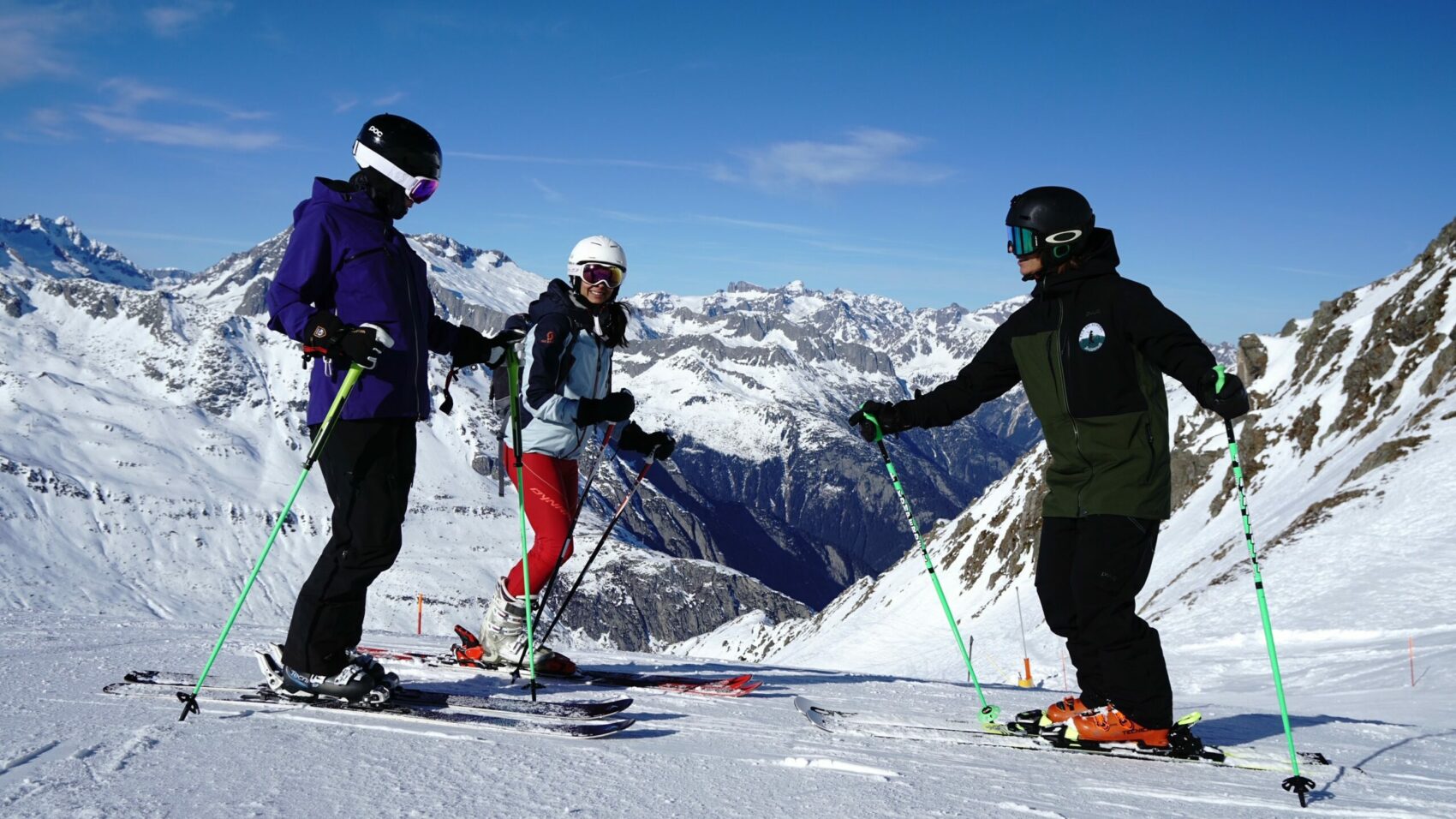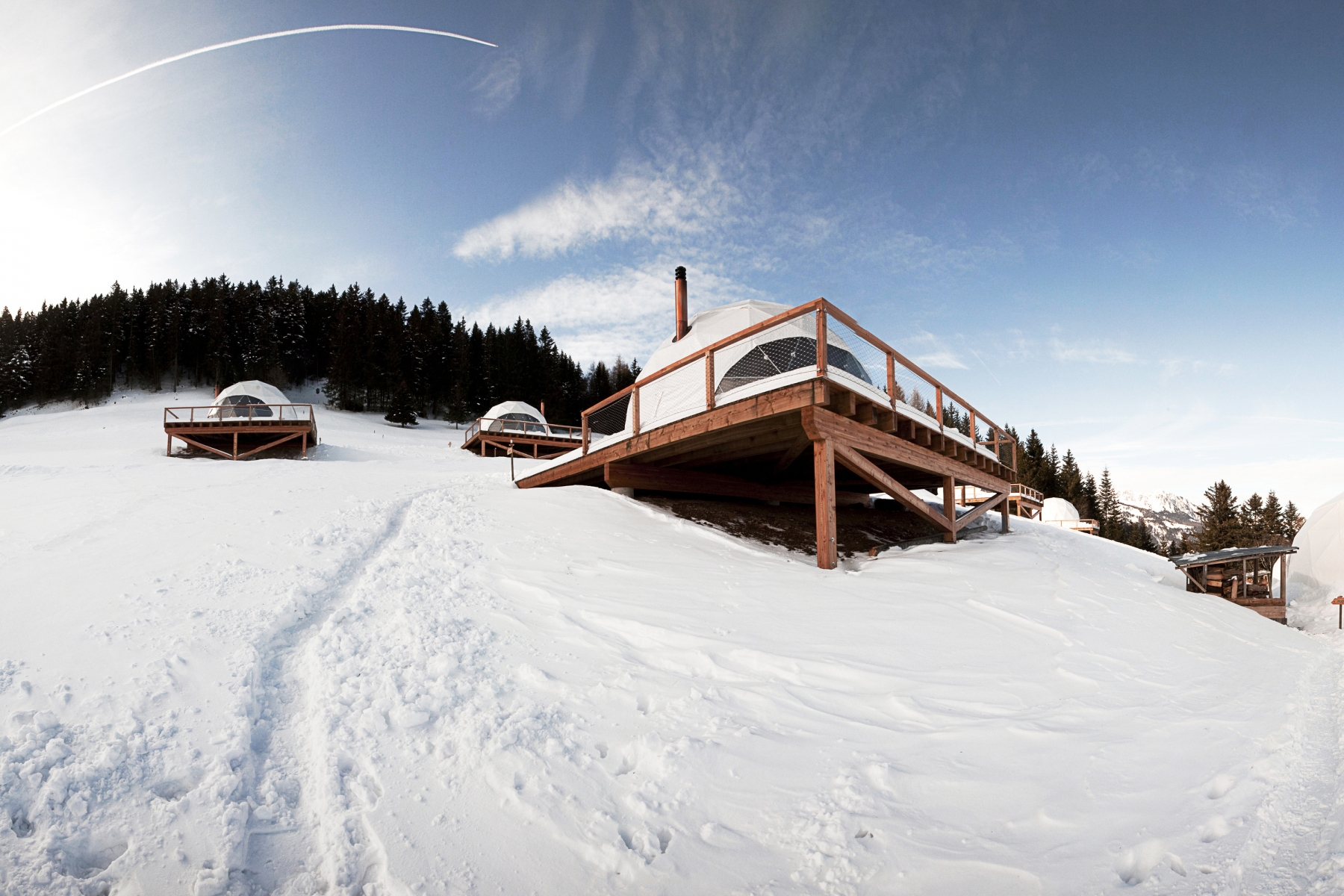This website uses cookies to ensure you get the best experience on our website. To read our full cookie policy please click here.
French Ski Resorts: The greenest places to sleep and eat
In France, those who work and live in the mountains are highly conscious of how fragile the ecosystems around them are, and have realised they have a duty to protect the natural environment on which the ski industry relies. The national association of mayors of the mountains has agreed and signed a charter of sustainable development for ski resorts, identifying areas that need work, agreeing best practices and on action that needs to be taken to preserve the mountains.
From rainwater collection to composting to photovoltaic solar panels and green-energy contracts and free shuttle buses to reduce traffic, ski resorts are working as a whole to improve environmental standards.
On top of this, individuals and business owners are doing their bit — and some more than others. We’ve picked out a few of the outstanding examples of ski hotels and restaurants doing their bit to improve the sustainability of our time on the ski slopes.
Wild Beets Kitchen, Les Gets
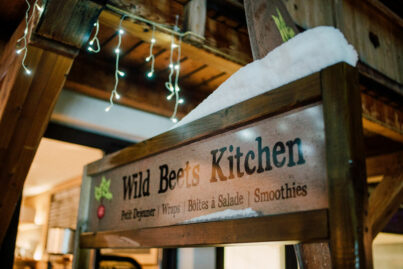 This healthy eating café and restaurant is a member of Morzine’s Montagne Vert association, working towards sustainable tourism.
This healthy eating café and restaurant is a member of Morzine’s Montagne Vert association, working towards sustainable tourism.
Where seasonably possible, fresh vegetables and salad are sourced from local markets and micro herbs from Bonjour Little Green in Anthy Sur Leman — where food waste is recycled for compost.
Wild Beets is sourcing organic beer, wine and soft drinks that are local to the area and use reusable and washable cleaning cloths.
Le Gîte des Tavernes, Valfréjus
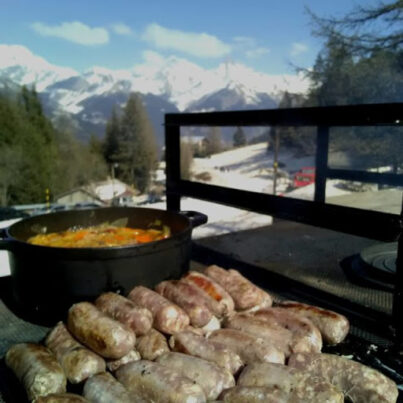 With an entirely homemade menu, with organic products most often sourced from the Maurienne Valley in which Valfréjus sits. There are frequent BBQs in summer and a Nordic bath on a platform under the trees for residents to use all year round — the gîte sleeps 30 people in four large rooms, great for ski touring.
With an entirely homemade menu, with organic products most often sourced from the Maurienne Valley in which Valfréjus sits. There are frequent BBQs in summer and a Nordic bath on a platform under the trees for residents to use all year round — the gîte sleeps 30 people in four large rooms, great for ski touring.
Ferme Auberge Le Chantacoucou, St Martin de Belleville
A farmhouse in St Martin de Belleville, this restaurant serves food directly from its farm, meat and dairy from animals reared on the spot and vegetables from the garden. Bernard, the farmer and proprietor, only opens when he has bookings so no food is wasted.
La Ferme des Trois Capucines, Tignes
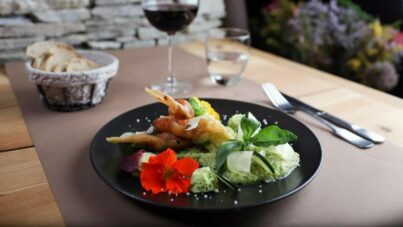 This farm at Tignes Le Lavachet serves homemade produce across its entire menu from starters to bread and deserts which in 2015 earned it a Gault & Millau for its commitment to sustainability and entirely homemade cuisine.
This farm at Tignes Le Lavachet serves homemade produce across its entire menu from starters to bread and deserts which in 2015 earned it a Gault & Millau for its commitment to sustainability and entirely homemade cuisine.
A working farm since 1985, there are 120 Taurine cows producing Beaufort cheese, grazing above 1500m and on the lower mountain of pastures in Tignes during the summer. Diners can eat while watching the cattle from their table.
Le Toi du Monde, Val d’Arly
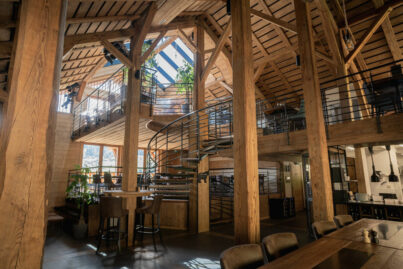 This family-run gîte and restaurant earned Michelin’s new “Gastronomie Durable”, an award launched in 2021 for sustainable tourism.
This family-run gîte and restaurant earned Michelin’s new “Gastronomie Durable”, an award launched in 2021 for sustainable tourism.
Chef and proprietor Florent Perrin has renovated his grandmother’s traditional Savoyard farmhouse with the intention of creating a unique agritourism business in the valley.
Le Toi du Monde is a gîte sleeping 20, along with a restaurant and wine bar, entirely carbon neutral thanks to its combined solar thermal and wood heating, and natural wool insulation. Dishes in the restaurant are created using only fresh, local ingredients and fruit and vegetables grown in the garden.
Base Camp Lodge, Bourg-Saint-Maurice
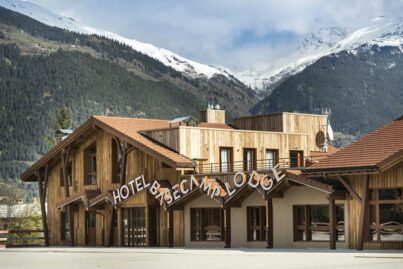 This hotel in the heart of the Tarentaise Valley (the owners are opening another in Les Arcs in December 2021) has a number of ‘best practice’ pledges including using local products for all supplies, bed linen is by Max Havelaar, a well-recognised label for sustainable development and is washed on site to avoid carbon impact of transporting it elsewhere.
This hotel in the heart of the Tarentaise Valley (the owners are opening another in Les Arcs in December 2021) has a number of ‘best practice’ pledges including using local products for all supplies, bed linen is by Max Havelaar, a well-recognised label for sustainable development and is washed on site to avoid carbon impact of transporting it elsewhere.
The lodge tries to reduce plastic wherever possible and has electric car charging points.
The restaurant also uses only local products and offers vegan dishes.
Hotel Le Morgane, Chamonix
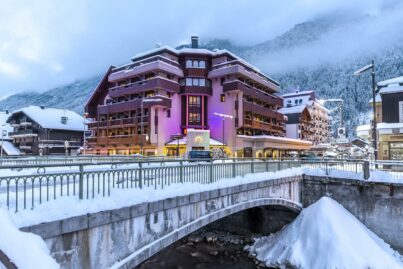 This boutique, four-star hotel in Chamonix was the first in France to be awarded both the Green Globe and European Ecolabel certifications.
This boutique, four-star hotel in Chamonix was the first in France to be awarded both the Green Globe and European Ecolabel certifications.
It has 55sqm of solar panels installed on the roof which heats its water, along with a heat-retrieval unit, and it was ahead of its time with systems to automatically turn off lights when no one is in the room or heating when windows are open.
In the gardens, local plants that can be maintained without fertiliser or pesticides were used and used local wood and stone in its refurbishments over the years.
Le Dahu, Morzine
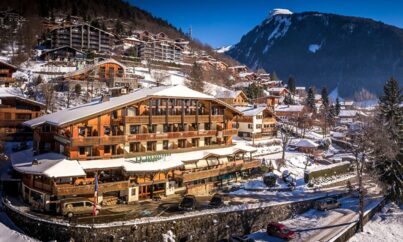 A founding member of Morzine’s Montagne Verte organisation, Le Dahu employs a host of social, environmental and economic initiatives for sustainable tourism.
A founding member of Morzine’s Montagne Verte organisation, Le Dahu employs a host of social, environmental and economic initiatives for sustainable tourism.
Proprietors François and Catherine have installed electric car charging stations, offer reusable ‘sliders’ in the spa, encourage guests to drink mountain water from the bathroom (by providing glasses and a jug), uses only recycled paper (and recycles that) and recycles soap from guest rooms with Unisoap.
On top of this the hotel keeps hens and composts all food waste, there are insect hotels in its garden.
In its restaurant, Le Dahu serves local products (and lists sources on a website it has dedicated to all of its sustainability work, franca-nature.com) and is installing solar panels to allow it to heat the swimming pool, open in summer, via renewable energy.
Favourite stories



